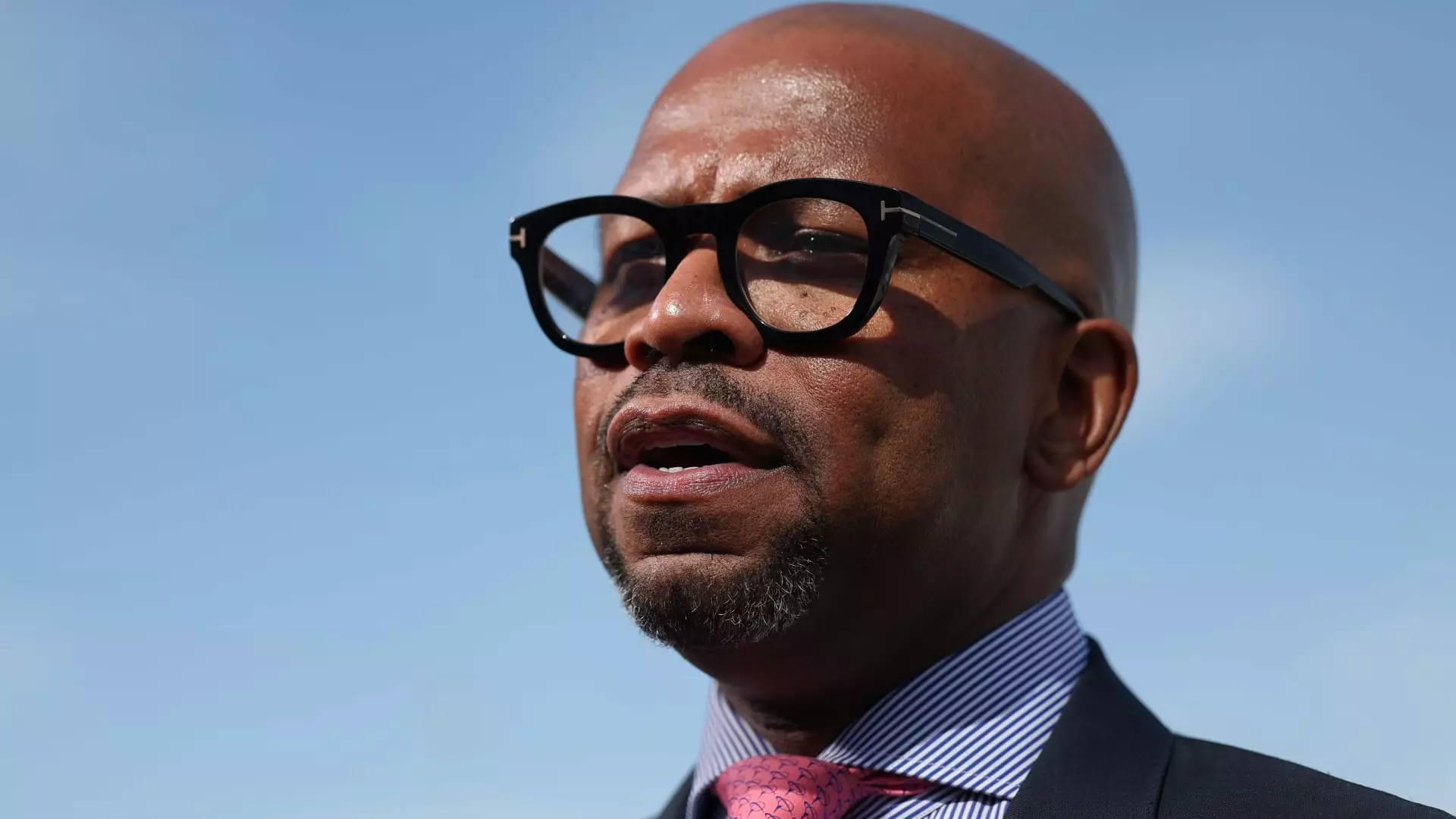The abrupt exit of Ted Colbert from Boeing’s defense unit has sent ripples across the aerospace landscape. Announced by CEO Kelly Ortberg, this decision represents a significant shift within the organization, particularly coming soon after Ortberg assumed leadership in August. Colbert’s departure arises at a challenging time for Boeing, where rebuilding customer trust and meeting expectations have become paramount. Ortberg’s assertion that the priority lies in restoring customer confidence indicates the weighty concerns surrounding the company’s performance and reputation.
Boeing’s defense, space, and security division is not just a segment of the company; it is a substantial contributor, accounting for nearly 40% of the corporation’s revenue in the first half of the year. However, this crucial unit is grappling with a series of production hurdles and alarming cost overruns that have raised eyebrows. The high-profile issues surrounding the production of new 747s, designated as Air Force One, serve as a glaring reminder that even legacy aerospace giants can stumble. When the stakes include national security and critical missions, mismanagement or oversights can have repercussions that extend well beyond the balance sheet.
While Steve Parker, the Chief Operating Officer, steps in as the interim leader, uncertainty looms regarding the future trajectory of the defense unit. The temporary leadership may afford the company a moment to reassess its operational strategies, yet it also raises questions about stability and vision during a pivotal time. The naming of a permanent successor will signal Boeing’s commitment to addressing ongoing challenges within the defense sector. The choice of a new leader will be crucial in reshaping how Boeing approaches its obligations to customers and stakeholders alike.
Colbert’s departure could signal deeper issues within Boeing’s culture and operational efficiency. For a company that has faced numerous crises in recent years, including the 737 MAX incidents, any leadership change comes under scrutiny. The focus on performance improvement, as emphasized by Ortberg, must resonate throughout the organization. Boeing’s path forward hinges not only on financial metrics but also on restoring its tarnished reputation. Successful navigation of this crisis will depend on transparent communication, accountability, and a steadfast commitment to rectifying past errors.
For Boeing, this leadership transition is more than just a change at the top; it symbolizes a crucial moment in the company’s history. As it confronts production issues and seeks to regain customer confidence, the steps taken over the coming months will be pivotal. The aerospace giant’s ability to recalibrate its operational practices and instill a robust leadership foundation will determine its success in overcoming the challenges at hand. In a highly competitive industry, every decision matters, and the impact of this leadership change will be closely monitored by stakeholders and competitors alike.

